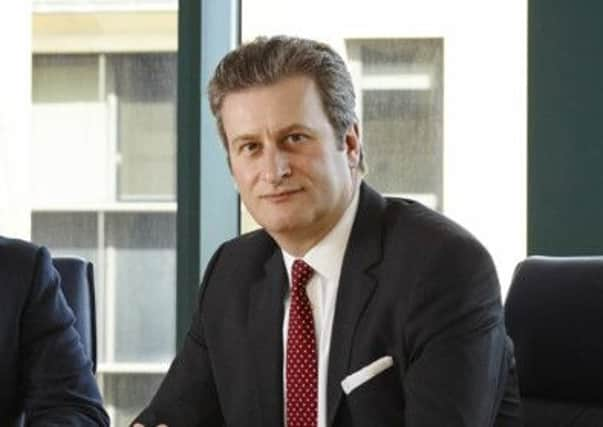Cairn’s Arctic ambitions melt amid job cuts plan


The Edinburgh-based explorer estimates there could be more than three billion barrels of oil waiting to be found off the coast of Greenland, where its activities have been criticised by environmental campaigners, but earlier this year decided to focus on an ambitious programme off the west coast of Africa.
Cairn owns almost 57 per cent of the Pitu block in Baffin Bay, and chief executive Simon Thomson said today that it wants to bring in more investors to join its current partners, Statoil of Norway and Greenland’s national oil company Nunaoil.
Advertisement
Hide AdAdvertisement
Hide AdHe told The Scotsman: “Any expenditure towards Greenland is discretionary. We have no commitments as such, so anything we do will depend on us bringing in partners to effectively cut our capital allocation towards any future exploration activity.”
Thomson’s comments came as Cairn announced a sharp drop in losses after tax to $62 million (£37.3m) for the six months to the end of June, down from $219m a year ago. That came despite a $3m restructuring charge linked to proposed redundancies at the group, which employs about 200 people.
A consultation process has already started with staff, but Thomson said it was too soon to put a figure on the eventual reduction in headcount.
He added: “It’s always about looking at our core competencies of operational, commercial and technical capability, and whether it would be more appropriate for some functions to be outwith the organisation and contracted in as and when we need them.
“Once we’ve finished our second well in Senegal, that will be the end of the Cairn-operated deepwater drilling programme, so there’s a natural point in the autumn when contractors are likely to move on to other things.”
Further restructuring costs are expected this year, but Thomson said these would be lower than the hit taken during the first six months.
The firm ended the first half with cash of $1.1bn, while its 10 per cent stake in former subsidiary Cairn India was also valued at $1.1bn, but it is unable to sell its holding amid an ongoing tax dispute with Indian authorities.
Thomson said: “There’s not a lot we can talk about publicly because it’s commercially sensitive but we’ve had incredibly active engagement and we’re absolutely focused on getting a resolution as soon as we can.”
Advertisement
Hide AdAdvertisement
Hide AdAlong with its drilling campaign off the coast of Africa, Cairn is also active in the North Sea and expects first oil from the Catcher field, in which it has a 30 per cent interest, to start flowing in the middle of 2017. The firm owns 25 per cent of the larger Kraken development, where first oil is targeted for 2016 or the following year.
Catcher is operated by Premier Oil, which holds a 50 per cent stake, and is expected to produce 96 million barrels of oil, while Kraken – 60 per cent owned by operator EnQuest – is estimated to have reserves of about 140 million barrels.
“They are very important fields and together will represent about 10 per cent of North Sea output once they’re at peak production,” Thomson said.
“Our own capital commitment is about $1bn between now and 2017, and we’re working very closely with the operators to make sure these projects move forward.”